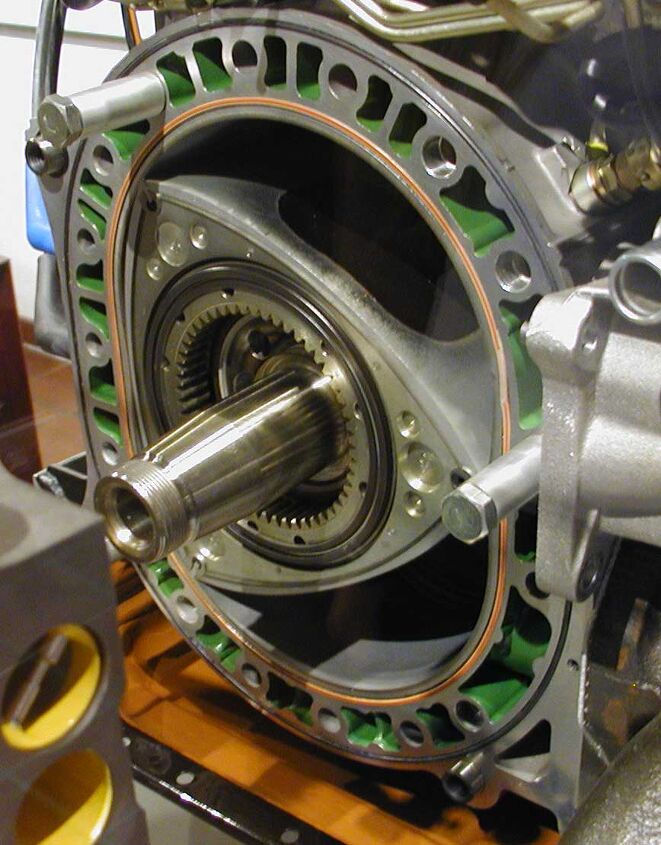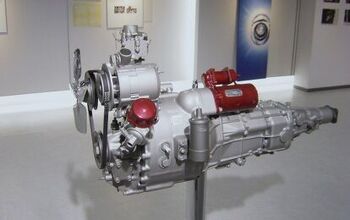Mazda Boss Scuttles Rotary Revival
Plans for a ressurected rotary engine appear to have hit a snag with Mazda CEO Masa-michi Kogai claiming that the required volumes for commercial viability are unrealistic.
Speaking to Automotive New s, Kogai said that a new rotary engine would need to hit volumes of 100,000 annual units, a figure considered unrealistic
“No plans now,” Kogai said in an interview Friday. “It has to be a viable commercial proposition. If we are going to adopt it, it has to be a product that can generate at least sales of 100,000 units a year. We have to be able to achieve a profit.”
However, Kogai said that research on the rotary engine will continue, specifically with regards to alternative fuels. The rotary engine has so far been able to run on hydrogen and even kerosene in additional to gasoline, and Mazda doesn’t appear to be discontinuing rotary R&D any time soon. However, Kogai’s mission is focused around improving profitability, and increasing efficiencies is his first priority.
More by TTAC Staff


































Comments
Join the conversation
While I grudgingly admit it's a reasonable business decision, I still shed a tear for my beloved spinning Doritos. Upside is, since I no longer need to save for a new car in 2017, this winter my RX8 and the RX7s are getting some upgrades.
Here is something I always wondered about with regard to rotary engines: 1) Felix Wankel was a German engineer; 2) He patented his invention in Germany; 3) German car companies (7 then) have a history of innovation and desire to explores new technologies; 4) Not a single German car company commercialized the Wankel engine in any of their vehicles. Why? Did they figure out rotary-engine issues, for the long term, that we just didn't understand in 1970? -----------------
First, I believe the reasoning for this decision is sound and wise. But the 100k/yr threshold is bit high, IMO. At this point, the rotary is an indulgence, and Mazda can't afford that right now. Thus, I cannot criticize the decision. That being said, I hope Mazda gets on sound-enough financial footing that they can afford the luxury to sell another RX car, and short of that, sell the 16X as crate motor. After all, eating healthy is good, but having some dessert now and then is a good thing. Thinking of the rotary's weaknesses, I have to wonder how much improvement it would have seen if all the car companies made them. Similarly, how little improvement in the piston engine would there have been if only one company had worked on it? FWIW, as long as I've known about the rotary, it's always been a step behind piston engines. I do believe there is room to make it better in efficiency, emissions, etc. But when that is done, the same improvements will be had from pistons. I don't see a way it will ever leapfrog the piston engine. I know others have joked about this, but I actually wonder if the particulate filters used on diesels and their tendency to increase oil levels could actually help the rotary. Since one of its problems is unburned hydrocarbons like diesels, the filter should improve emissions directly. If the system suffers the same problem of the fuel ending up in the oil, and since oil is injected into the engine (and burned) anyway to lubricate the apex seals, contamination may not matter too much. And rising oil levels would actually be maintaining oil levels. Owners already have to check/change oil frequently, so that's not an added expense.
*sigh* I guess I finally give up on ever seeing an improved rotary. By the way, if anyone wants a clean 10th Anniversary RX-7 daily driver, I'm selling.